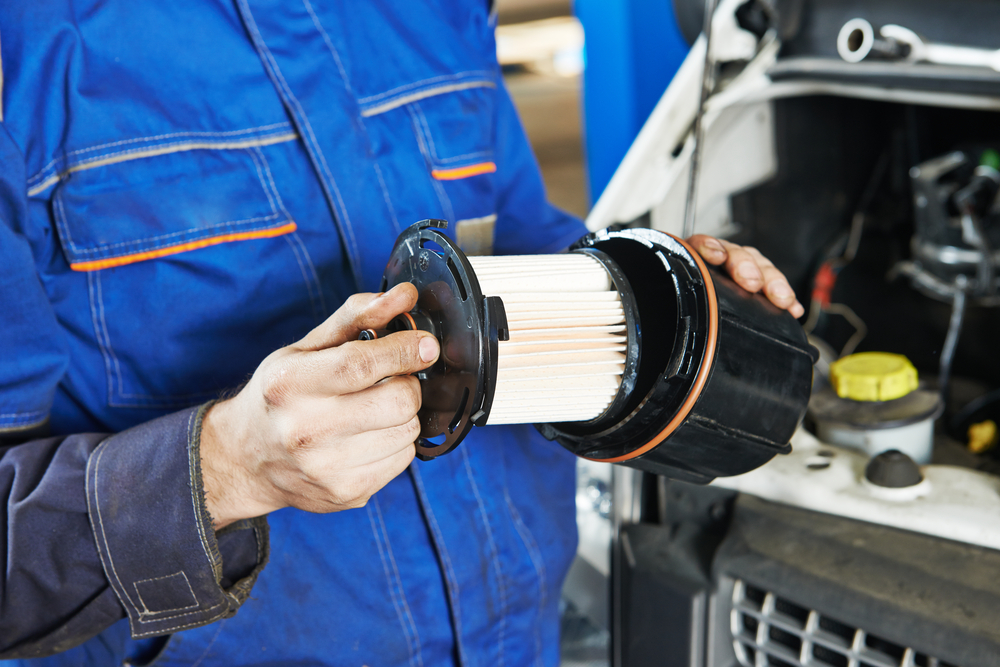- March 30, 2021
- By Park Muffler
- In Blog, Vehicle Maintenance
8 Tips for New Diesel Drivers

Are you new to the world of diesel engines?
Whether you are driving a commercial diesel vehicle for work, or are making a personal choice to buy a diesel vehicle, it’s important to understand how these vehicles work in comparison to gasoline engines.
Driving a diesel vehicle has many benefits including having a tougher engine, numerous safety advantages, ramped up torque and better fuel efficiency.
Overall, diesel engines can save you more at the pumps and last longer than gasoline engines. They just need a little more TLC.
So while diesel engines may take a bit more care, it’s easy to see why many drivers are gravitating toward them and away from gasoline engines.
If you are new to the world of diesel engines, here are some tips to ensure that your vehicle operates in peak condition:
1. Winter Maintenence
Diesel engines do not like cold temperatures and tend to warm-up slower than gasoline engines. At extremely low temperatures, a diesel engine may not start at all.
During the winter months, it’s important to use your diesel’s block heater. This electrical plug on your vehicle can be plugged into your home’s electricity to keep your engine warm.
Doing so will protect your diesel vehicle and help your engine warm up quickly and without issue.
2. Differences in Mileage
Compared to gasoline engines, diesels engines are a good choice for drivers who mostly drive on the highway.
Otherwise, when it comes to city driving, the difference in fuel efficiency minimizes yet diesel engines still come out on top when it comes to mileage.
This is because diesel fuels provides up to 30% more energy per gallon than gasoline as well as more torque. High torque causes better acceleration which gives diesel an advantage when it comes to fuel economy and mileage.
3. DEF Fluid
Diesel vehicles require something called DEF (Diesel Exhaust Fluid) which is sprayed into the exhaust stream to convert dangerous emissions into nitrogen and water.
The solution contains 32.5% urea and 67.5% de-ionized water but it is not a fuel additive and never comes into contact with the diesel fuel.
Since 2010, the use of DEF fluid in diesel vehicles is required by the EPA and vehicles manufactured after this date are typically equipped with a separate tank to accommodate the DEF fluid.
4. Turbo-Chargers and Air Filters
Most new diesel engines are equipped with a turbo-charger, which forces outside air into the engine to increase efficiency and performance.
Because turbo-chargers are powerful, you need to make sure the intake air is clean and clear of debris by cleaning and changing the air filter on your diesel vehicle.
Modern diesel vehicles are equipped with a sensor and warning light that will let you know that it’s time to change the air filter – which you should do immediately. Otherwise, damage can occur to your engine.
5. Diesel Fuel and Fuel Filters
Your air filters are not the only filters that need to be taken into consideration when driving a diesel vehicle.
Because diesel fuel isn’t as clean as gasoline, it’s important to keep an eye on your fuel filters. Failing to change them when necessary can lead to your car malfunctioning and not working at all.
Again, modern diesel vehicles feature a sensor and warning light that will let you know when it’s time to change your fuel filter – which will probably occur more often than with a gasoline vehicle.
6. Purging Water from the Fuel System
Not only is diesel fuel less pure than gasoline but it contains water as well. This small amount of water will not harm your diesel engine but you may need to purge the water from your diesel’s fuel system manually.
Each vehicle is different, so you’ll have to check your owner’s manual to see how this is done and how often it should be done.
Luckily, many mechanics will do this for you a minimal charge and dispose of the water/fuel mix in an environmentally conscious manner.
7. Diesel Engines and Oil Burning
Diesel engines are notorious oil burners and will burn more oil while you are driving your vehicle than a gasoline engine.
Be sure to regularly check your vehicle’s oil levels between oil changes. Your owner’s manual will tell you how to read your engine’s dipstick and when to add oil.
When you do check your oil, make sure the engine has cooled for at least 30 minutes to get a safe and accurate reading.
8. Diesel Engine Break-In Period
While diesel engines are more fuel efficient than gasoline engines, it can take around 800-1600 km before a brand new diesel engine to break in.
During this break-in period, it is recommended that you do not take long trips on highways or haul anything with your vehicle.
After the break-in period, you’ll notice your diesel engine continually improving in power and efficiency. Unlike gasoline engines, diesel engines need more time to reach their peak – which can take about a year or two in some cases.
Let the Experts Take Care of Your New Diesel Vehicle!
Although diesel vehicles are quickly rising in popularity, it can be challenging to find experienced professions with the right tools and knowledge to properly maintain and repair your vehicle.
Before you pay for the services of a specialty shop, come see our diesel mechanics at Park Muffler!
Our expert diesel mechanics know diesel systems inside and out and understand the importance of proper maintenance to extend your engine’s life and maximize its performance and efficiency.
Get in touch with us today to learn more about diesel engine repair, diesel fuel systems repair and diesel performance upgrades!
Proudly Canadian owned and operated
© Park Muffler - All Rights Reserved.


